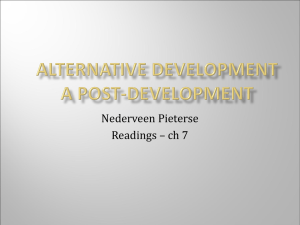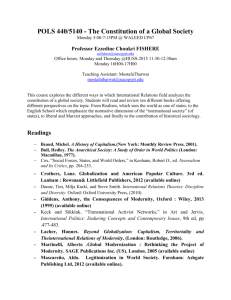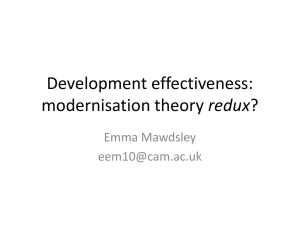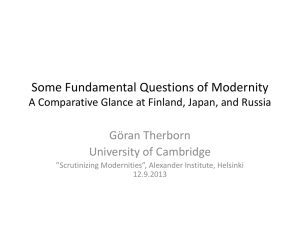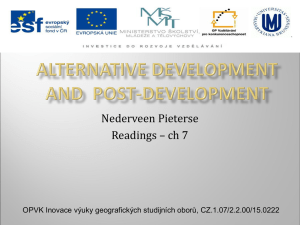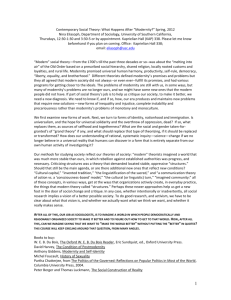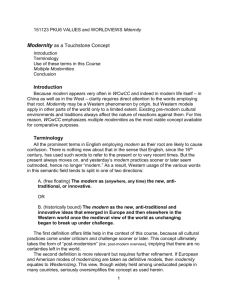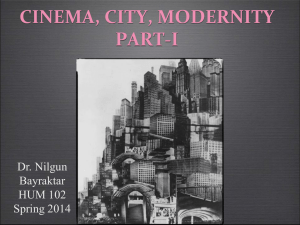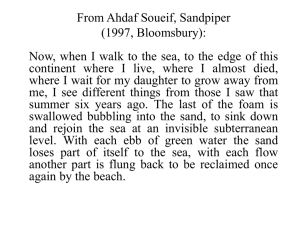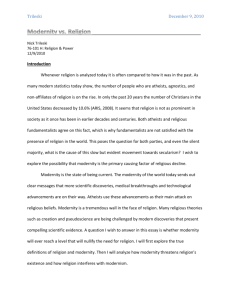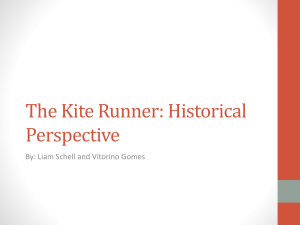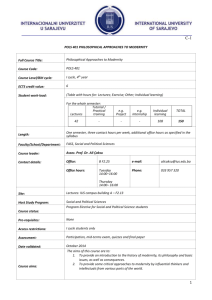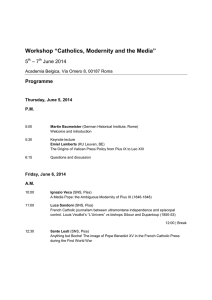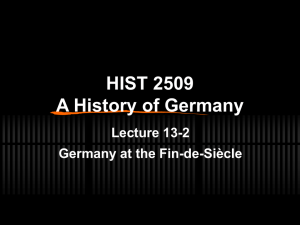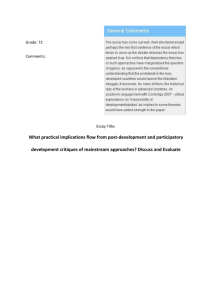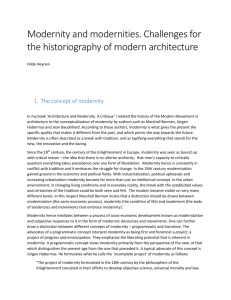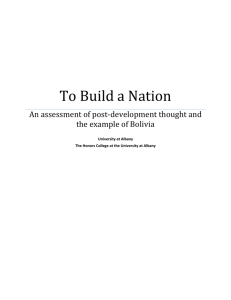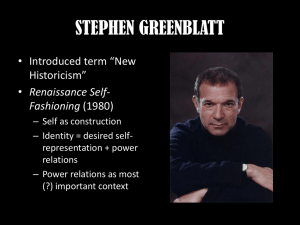3) post-development
advertisement
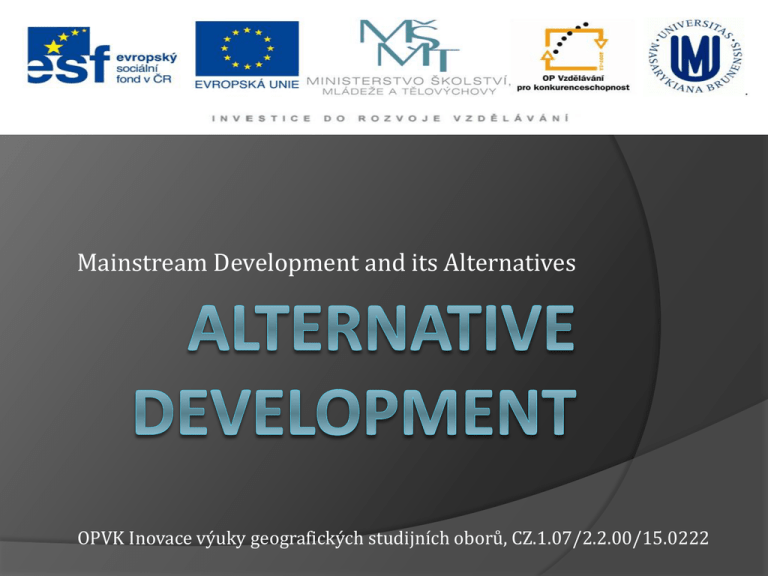
Mainstream Development and its Alternatives OPVK Inovace výuky geografických studijních oborů, CZ.1.07/2.2.00/15.0222 Development and post-modern turn Since 80s – post-modern turn in development Revolution in develpment thinking Rethinking of acultural and technocratic thinking opened up to critique from post-modern position DEVELOPMENT AND POSTMODERNISM Forsyth - Encyclopedia of International Development (2005) 1)New historicism, antropology of institution and post-development – locates development within the larger framework of historical and cultural development 2) institutional politics self-reflexivity and post-structural insights 3) post-development – development as outdated project, radical rejection of development New historicism New historicism and antropology of institutions (ETHNOGRAPHIC NARRATIVES OF INSTITUTIONS) Practices that ´created the Ohter´ Cf Sauvy (1952) and Rista (2001). Antropology of modernity Aim – to deconstruct the cultural and historical practices that have produced Western Modernity New historicism Escobar Encountering Development the Making and Unmaking of the Third World (Escobar, 1995:12). Deconstruction of modernity and its categories that are taken for granted Subsequent claim to universalism, Deconstruction of modern epistemology (Escobar, 1995:12). Antropology of modernity historic specificity of modernity – REFLEXIVITY OF MODERNITY CULTURAL PRACTISES OF MODERNITY Garner a Lewise – deconstruction of basic assumptions on which project of modernity is based on ANTROPOLOGY OF MODERNITY Uncovering of power relations underlying project of development (Garner, Lewis, 1996:77) Etnographic approaches uncovering socially and historically shaped forms of practices Practices = knowledge and power Institutional politics self-reflexivity and post-structural approaches Development = set of practices and represenations Development – forms of governmentality (Foucault, cit. podle Forsyth, 2005:457); gouverner + mentalité = gouvernmentalité Institutional politics Cf Kierseyho a Stokese (2010) Bio-power and governmentality KIERSY, N.; STOKES, D. (2010): Foucault and International Relations : New Critical Engagements ( Interventions). London: Routledge. Institutional politics Institutional analysis – attempt at valuefree approaches The approaches aknowledges the root of development project in modernity disagree with the solutions offered by post-development Abandonment of thinking and practices of development (Post-development) Mosse new anthropology production of knowledge within the framework of international relations, political and historical relations which shape the represenations (Mosse, 2005:11). BØÅS, M., MCNEILL, D. (2004): Global Institutions and Development, New York: Routledge. - UN and transformation of ideas within the institution Cf WB and ´good governance´- lip service Local and alternative movements Strong points – post-structuralist critique Weakness – alternatives offered Rist, de Sauvy :http://www.apresdeveloppement.org/accueil/index_en. php. Participative practices Does less market participation mean automatically greater extent of social participation? (Nederveen Pieterse, 2001). Post-development authors disregard the different currents of mainstream development Ferguson Ferguson, J. (1990): The Anti-Politics Machine: ´Development´, Depoliticisation, adn Bureaucratic Power in Lesotho, Cambridge: Cambridge University Press. Manifest vs. latent functions of development Homogenic apparatus Escobar´s critique of Said Discursive determinism (Escobar, 1995). Saïd - discourse analysis based on literary texts But colonial/post-colonial, sub-altern studies Rahmena Post-development RIST, G. (1997): The History of Development, From Western Origin to Global Faith, London: Zed Books. RAMOMET, I. (1998): The One and Only Way of Thinking. In Rahnema, M., Bawtree, V. (1998): The Post-development Reader. London: Zed Books. GANDHI, L. (1998): Postcolonial Theory: a critical introduction, Columbia University Press. FORSYTH, T. (ed.) (2005): Encyclopedia of International Development. London and New York: Routledge. COWEN, M. P.; SHENTON, R.W. (1996): Doctrines of Development, London and New York: Routledge.

